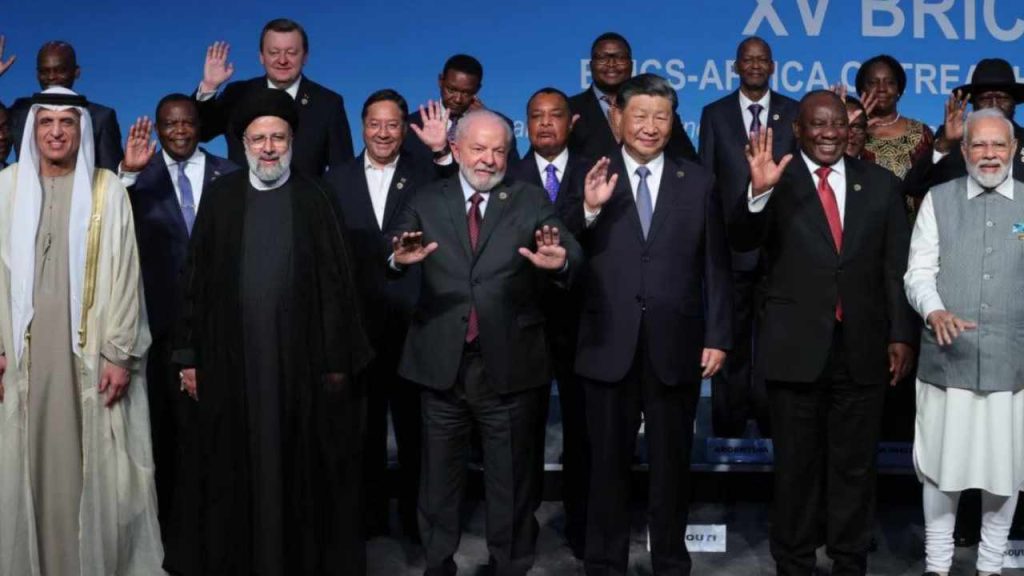Ethiopia, Egypt, Saudi Arabia, the United Arab Emirates, and Iran have officially become members of BRICS as of January 1, expanding the group’s composition to ten countries. These newcomers join the founding members—Brazil, Russia, India, China, and South Africa.
According to reports, experts anticipate that the inclusion of Saudi Arabia and the UAE in the BRICS bloc will open up new investment opportunities for the two largest economies in the Arab world, simultaneously enhancing the group’s global influence.

Ullas Rao, assistant professor of finance at the Edinburgh Business School of Heriot-Watt University in Dubai, highlighted that Saudi Arabia and the UAE, being among the wealthiest nations per capita, boasting significant sovereign wealth funds, signal positive prospects amid the ongoing global economic and geopolitical challenges.
The International Monetary Fund predicts a 0.8% increase in Saudi Arabia’s GDP in 2023, following an impressive 8.7% growth in 2022—the fastest among the world’s 20 largest economies.
A recent World Bank report indicates a 3.4% growth in the UAE’s economy in 2023, driven by robust performances in tourism, real estate, construction, transportation, manufacturing, and increased capital expenditure.
The UAE is actively forging trade agreements to strengthen ties with neighbouring nations and is currently negotiating 26 comprehensive economic cooperation agreements.
As China and India, key BRICS members, maintain substantial energy links with the Gulf nations, the likelihood of increased bilateral commerce in local currencies grows, according to some experts.
BRICS Expansion Signals a Shift Away from the US Dollar
The previous year saw the UAE and India collaborate on a framework to promote the use of local currencies in cross-border transactions, with India starting to purchase UAE oil in Indian rupees.
With BRICS expanding, experts believe that alternatives to the US dollar are expected to gain prominence, offering a diversified approach to mitigating risks. The new mechanisms forged by BRICS are expected to promote political cooperation among its members, a move that aligns with the geopolitical aspirations of Arab countries without completely detaching from the West.


